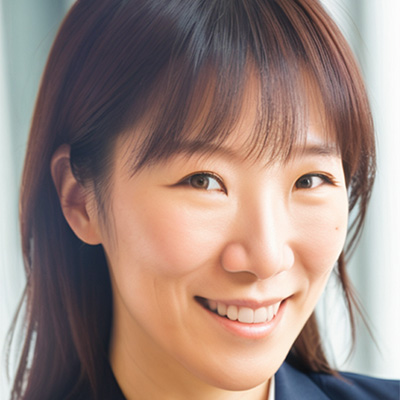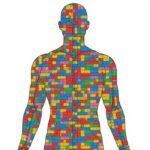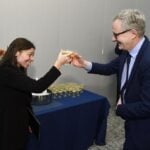Yun Chen Receives NSF Trailblazer Engineering Impact Award

Yun Chen, associate researcher at the Institute for NanoBioTechnology and associate professor in the Department of Mechanical Engineering at the Whiting School of Engineering, is one of six inaugural recipients of the National Science Foundation (NSF)’s Trailblazer Engineering Impact Award. The three-year, $3 million award supports high-risk, high-reward novel research projects that creatively address major societal challenges, advance US leadership, and merge engineering and science fields.
The NSF selected Chen for the award based on the strength of her proposed project and her track record of conceiving and executing transformative research projects and making major contributions toward solving significant research problems.
For her project, Chen proposes to apply the rules of quantum mechanics to control how cells behave. Inspired by enzymes sensitive to magnetic fields that influence the rate of many cellular functions, she plans to engineer a class of synthetic proteins, called quantum-enabled dial (QED), that can be modulated by magnetic fields to control any biochemical reaction.
“The goal is that by adjusting the strength and pattern of the magnetic field, we could start, stop, increase, or decrease reactions in the human body,” she said.
If successful, QEDs have the potential to transform synthetic biology to manufacture healthy tissues to replace damaged tissues, and in medicine to produce smart drugs that activate precisely when and where they are needed in the body. QEDs could also revolutionize quantum computing. Most current quantum computers operate at -459°F (-273°C) but using QED as a computational unit could allow them to operate at room temperature, which is the most challenging aspects of quantum computing.
“QEDs can address many grand challenges in fields like synthetic biology, tissue engineering, medicine, and quantum computing. I am excited to be given the opportunity to develop this technology,” said Chen
This announcement can also be read on the Hub.
Latest Posts
-
 Cellular building blocks may enable new understanding of the body’s “machinery”
December 19, 2025
Cellular building blocks may enable new understanding of the body’s “machinery”
December 19, 2025
-
 Biomedical Engineer Jamie Spangler Receives President’s Frontier Award
December 15, 2025
Biomedical Engineer Jamie Spangler Receives President’s Frontier Award
December 15, 2025
-
 Johns Hopkins Postdoc Named in Forbes `30 Under 30′ List
December 8, 2025
Johns Hopkins Postdoc Named in Forbes `30 Under 30′ List
December 8, 2025


